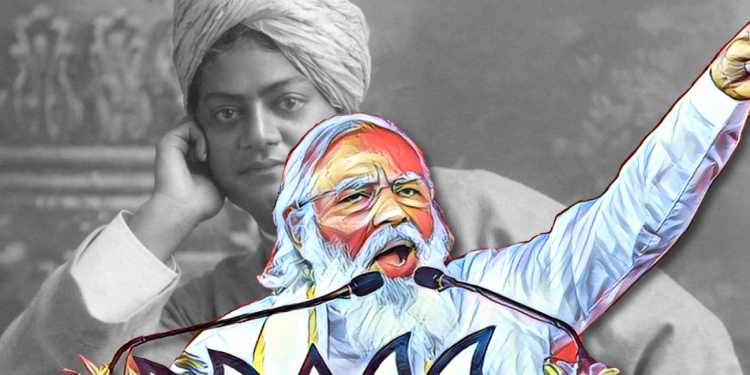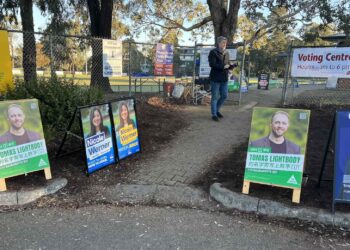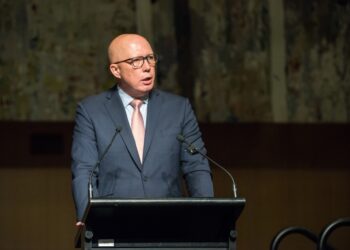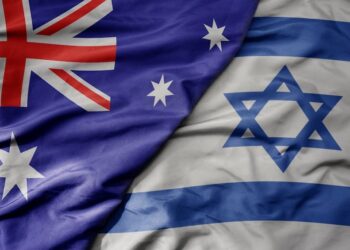He introduced Hinduism to America more than a century ago. Today, the rulers in India who have appropriated his name have little regard for his call to end sectarianism, bigotry, and fanaticism.
“Iam proud to belong to a religion which has taught the world both tolerance and universal acceptance. We believe not only in universal toleration, but we accept all religions as true…Sectarianism, bigotry, and its horrible descendant, fanaticism, have long possessed this beautiful earth. They have filled the earth with violence, drenched it often and often with human blood, destroyed civilization, and sent whole nations to despair.”
— Swami Vivekananda, at the inaugural session of the World Parliament of Religions in Chicago, September 11, 1893.
As we approach the 20th anniversary of 9/11, we are asked how that horrific event changed the lives of the Indian community in America. Our quick response is that as an immigrant community of color, we too saw a major shift in attitudes of many Americans, with more people emboldened to express their bigotry openly.
Sikhs were of course the immediate targets, often mistaken for Muslim Arabs. Balbir Singh Sodhi, a gas station owner in Mesa, AZ, was shot dead by a fanatic within four days of 9/11. According to the Sikh Coalition and FBI statistics, Sikhs are among the nation’s most-targeted religious groups and are hundreds of times more likely than their fellow Americans to experience hate crimes because of their distinct appearance.
Hate crimes against Muslims following 9/11 jumped from 28 incidents in 2000 to 481 in 2001! They have continued to register in the mid-hundreds ever since. Muslims also faced increasing hostility and profiling at airports following 9/11, so much so that many Muslim-Indians had to put off their trips to India to visit families.
In the recent past, the Trump presidency gave a new fillip to the fanatics. In 2017, we saw the murder of a 32-year-old software engineer in a Kansas City bar, Srinivas Kuchibotla, a Hindu, by a gunman who reportedly mistook him for a ‘Middle Easterner.’ In the same year, there was an arson attack on a Florida store owned by a Hindu, which was apparently mistaken for an Arab-owned business.
The true impact of 9/11 for the Indian-American community, however, has not been in America, but in India, where the majority Hindu community had for long kept its Hindu fanatics out of state power. 9/11 began to change that status quo ante with alarming rapidity.
The surge in Islamophobia across the world and the so-called ‘war on terror’ in many countries, including India, were shrewdly exploited by the Bharatiya Janata Party (BJP) and its ideological parent, the Rashtriya Swayamsewak Singh (RSS), to bring about the unthinkable in 2014: A government in Delhi headed by the extreme wing of the BJP/RSS, whose raison d’etre for over a century has been visceral dislike for Islam and Christianity.
As we write, the government of Narendra Modi and Amit Shah have been ruling India for seven years. They have already managed to change a once bustling, if seemingly chaotic, democratic India into a nation of the fearful – fearful of criticizing the Prime Minister and fearful of retaliation by the state and its proxies by any means necessary.
The BJP and the RSS now have total control over all levers of the state. Majority support in both houses of the Parliament has turned the legislative branch into a rubber stamp of the government, as exemplified by the new Farm Laws, which are being staunchly opposed by millions of farmers.
During Modi’s second term, street violence against Muslims are continuing for any reason or no reason at all, with demands that the victims chant ‘Jai Shree Ram’ – an act seen by Hindu fanatics as a mark of the surrender of the minorities to a majority Hindu state in the making.
With its recent rulings in favor of the government and, of majority Hindus, India’s once famed Supreme Court has lost its credibility with many citizens, especially among the minorities (see Ayodhya judgment). The current Chief Justice seems to be more independent, but there is little chance that any of the recent judgments will be reversed or the court will take up a slew of pending petitions against anti-people legislations such as discriminatory citizenship laws.
Read: Why should Australia be concerned about the human rights situation in India?
Modi’s first term was marked by a spate of mob lynchings of Muslims, sometimes on the mere rumor that they were storing or selling beef. But during his second term, street violence against Muslims are continuing for any reason or no reason at all, with demands that the victims chant ‘Jai Shree Ram’ – an act seen by Hindu fanatics as a mark of the surrender of the minorities to a majority Hindu state in the making.
Rape and sexual violence, especially against Dalit women, has seen an alarming rise under Modi, often accompanied by misogynistic reactions by BJP politicians. Attacks against churches and Christian preachers have also seen a steady rise. Just last week, four people were arrested for ‘illegal’ religious conversions and “waging war against India” under anti-conversion statutes that are widely seen as unconstitutional.
A law created in 1967 as an anti-terrorism law meant to maintain the “sovereignty and integrity of India” has been amended by the Modi regime to allow the state to label anyone as a terrorist and incarcerate them for months or years with no possibility of bail (UAPA). In the so-called “Bhima Koregaon” case, sixteen activists have been jailed under that law, falsely accused of fomenting violence. They remain in custody despite credible forensic evidence that some of their computers were hacked to plant incriminating material.
Father Stan Swamy, a Jesuit priest, one of the sixteen accused, recently died in state custody as he was denied bail despite failing health due to Parkinson’s disease and contracting COVID. With his passing, those who are keen on exploiting the mineral wealth under India’s indigenous tribes in the state of Jharkhand have one less formidable obstacle in their way.
In the U.S., several Hindu organizations who once used to claim that they were in no way associated with the RSS and VHP, have now thrown all pretense to the wind and have embraced the Hindu nationalist agenda with gusto. They are deliberately equating the fascist-like Hindutva ideology to Hinduism, making a mockery of the lived Hinduism of a majority of practitioners in India, who like all Indians believe that respect for all religions is the core of their identity. (See Pew Research survey).
In recent weeks, Hindutva-aligned groups in the U.S. have been engaging in vicious attacks on the academic community for organizing a conference titled “Dismantling Global Hindutva – Multidisciplinary Perspectives,” supported by over 53 universities. Many of the participants are being swamped with hate mails and death threats. By deliberately equating Hindutva with Hinduism, opponents are making the preposterous claim that the academic community is attacking Hinduism!
They also claim to have sent over a million emails to university presidents and provosts demanding that they withdraw their support for the conference, which would make this the largest brazen assault on academic freedom since the McCarthy era. Unfortunately for them, there hasn’t been a single withdrawal.
Even more troubling is that they seem to be ‘policing’ the Indian American community and are acting in concert with Hindutva groups in India to invite the Indian government agencies to intervene in our academic freedom – a troubling development that every American ought to condemn.
Ominously, over 150 Hindu groups, including those now attacking our academic freedom from India recently met in a conclave in Goa to make plans for declaring India a Hindu Rashtra by the year 2023. The conclave included organizations linked to the assassination of anti-Hindutva activists in recent years. While the BJP stayed away, it seemed perfectly happy to let the “war on the Indian constitution’ proceed apace, while accusing activists fighting to save Indian democracy of “waging war against India.”
In the meantime, the Biden administration seems to have buried its head in the sand with respect to India policy, despite strong censures and policy recommendations by the U.S. Commission on International Religious Freedom (USCIRF). Sadly for Indian democracy, the state department also seems stuck in old-fashioned cold war diplomacy by placing their ‘China containment policy’ above any public defense of Indian democracy.
This is deeply disappointing and unacceptable to those Indian Americans who equally cherish the world’s two largest democracies.
“I fervently hope that the bell that tolled this morning in honor of this convention may be the death-knell of all fanaticism, of all persecutions with the sword or with the pen, and of all uncharitable feelings between persons wending their way to the same goal,” Swami Vivekananda had concluded in 1893.
128 years later, he would have been surprised to see that those who take his name most frequently in India are the ones holding the menacing sword and the poison pen today.
This article was originally published in American Kahani.











